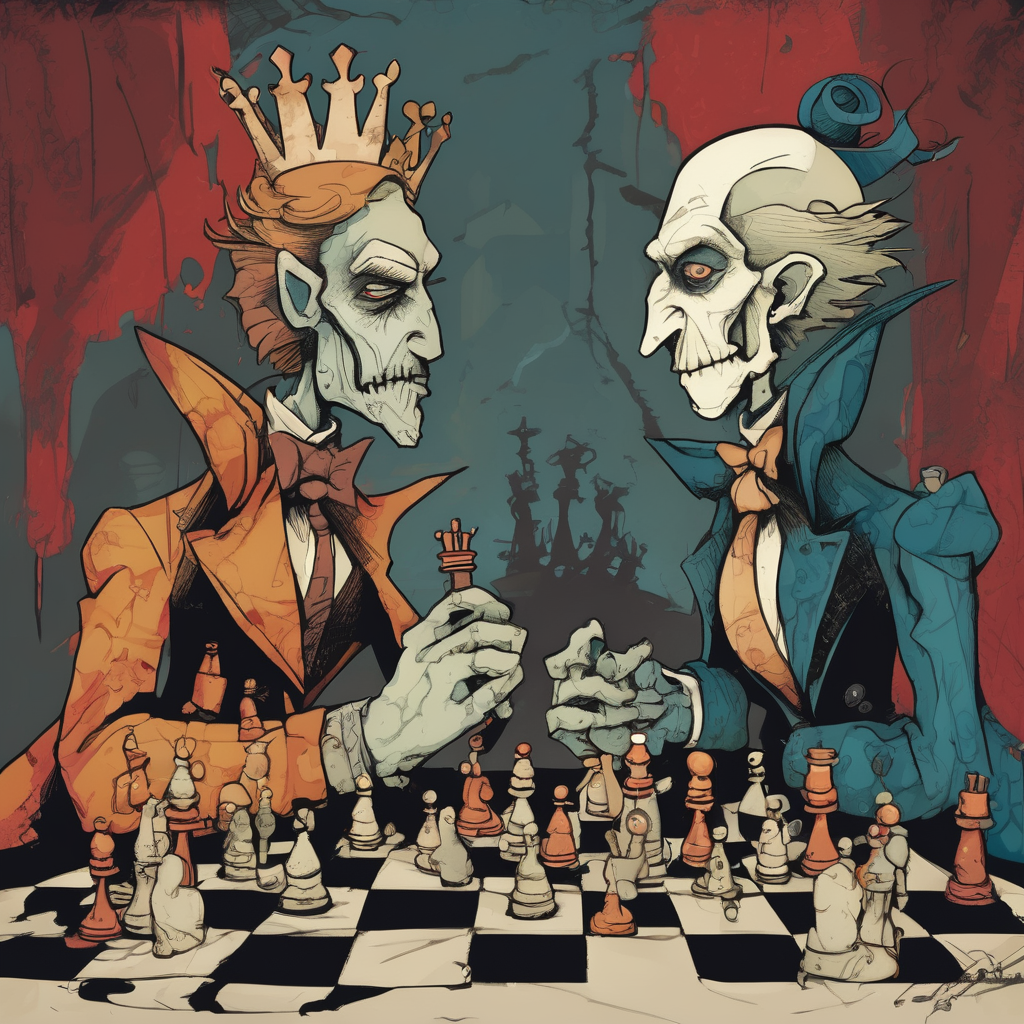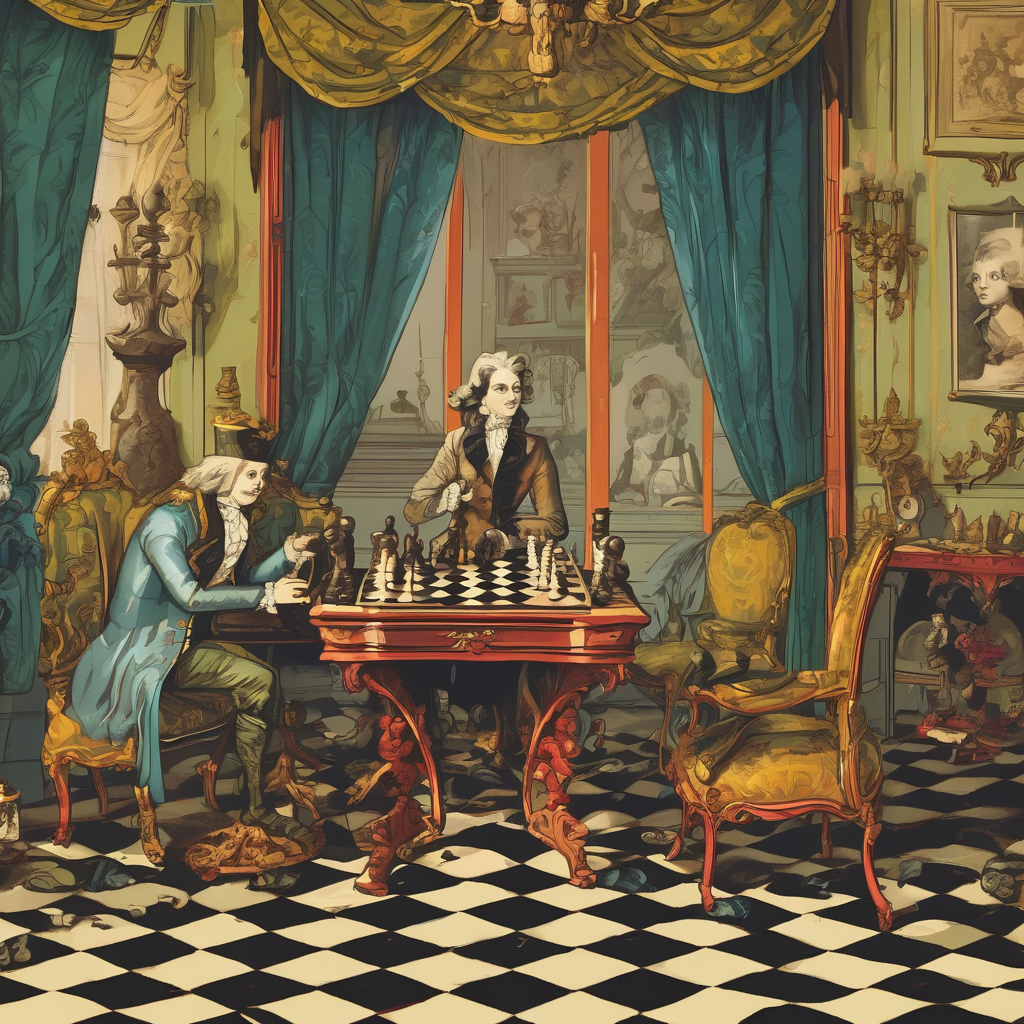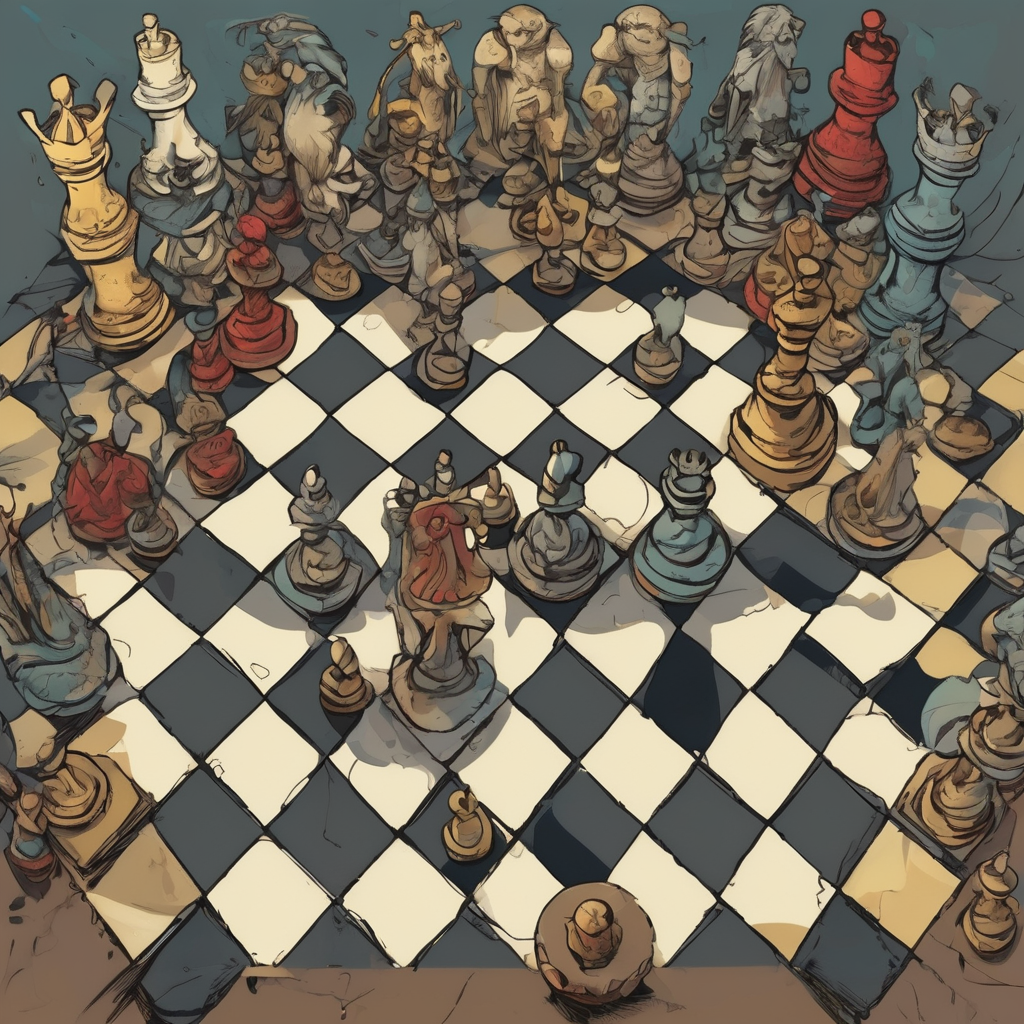
Chess offers valuable strategies that can be applied to various aspects of daily life, drawing from both esoteric (inner, philosophical) and exoteric (outer, practical) lessons.
Chess, a timeless dance of wit and strategy, mirrors the intricate flow of daily life. Each piece, like a facet of our existence, moves with purpose, embodying the choices we make and the paths we tread. The king, fragile yet pivotal, represents our core values, while the queen, powerful and versatile, symbolizes the myriad roles we play.
In this grand game, patience reigns supreme. Just as a player must wait for the opportune moment to strike, we too must cultivate the art of timing. Life unfolds in a series of moves, each decision a step toward our ultimate goals. The knight, with its unpredictable leaps, teaches us adaptability—sometimes, the most unconventional paths lead to the greatest rewards.
Yet, amid this strategic battleground, we learn the value of sacrifice. A pawn, often underestimated, can transform into a queen, a metaphor for potential hidden within the ordinary. In life, we must recognize that temporary losses can pave the way for profound gains, reminding us that growth often emerges from discomfort.
As we navigate our daily challenges, the chessboard serves as a mirror, reflecting the necessity of foresight. Each encounter is a game, where understanding our opponents—be they colleagues, friends, or adversaries—can turn the tide in our favor. Thus, chess becomes more than a game; it is a philosophical lens through which we explore the depths of strategy, resilience, and the intricate dance of human interaction, urging us to embrace both the light and shadow within ourselves.

Patience and Timing: Just as in chess, good decisions often require patience. Rushing can lead to mistakes; waiting for the right moment can yield better outcomes.
Long-term Planning: Chess teaches the importance of thinking several moves ahead. In life, setting long-term goals and making plans to achieve them can lead to success.
Adaptability: The ability to adapt to changing circumstances on the board reflects the necessity of flexibility in life. Being open to change can lead to new opportunities.
Mindfulness: Each move in chess requires focus and awareness. Practicing mindfulness in daily activities can enhance decision-making and reduce stress.
Understanding Opponents: Recognizing the strengths and weaknesses of your opponent in chess parallels understanding people in life. Empathy and insight can improve relationships and negotiations.

and the Exoteric lessons ...
Risk Management: Chess involves assessing risks with each move. In life, weighing the potential benefits and drawbacks of decisions can lead to more informed choices.
Resource Management: Just as you manage your pieces in chess, effective resource management—be it time, money, or energy—is crucial in daily life.
Strategic Sacrifices: Sometimes, sacrificing a piece in chess can lead to greater gains. In life, making short-term sacrifices (like time or comfort) can lead to long-term rewards.
Tactical Awareness: Recognizing patterns and tactics in chess can translate to being alert to opportunities or threats in everyday situations, enhancing problem-solving skills.
Learning from Mistakes: Each game teaches valuable lessons. Embracing failure as a learning opportunity can foster growth and resilience.
Comments
Post a Comment